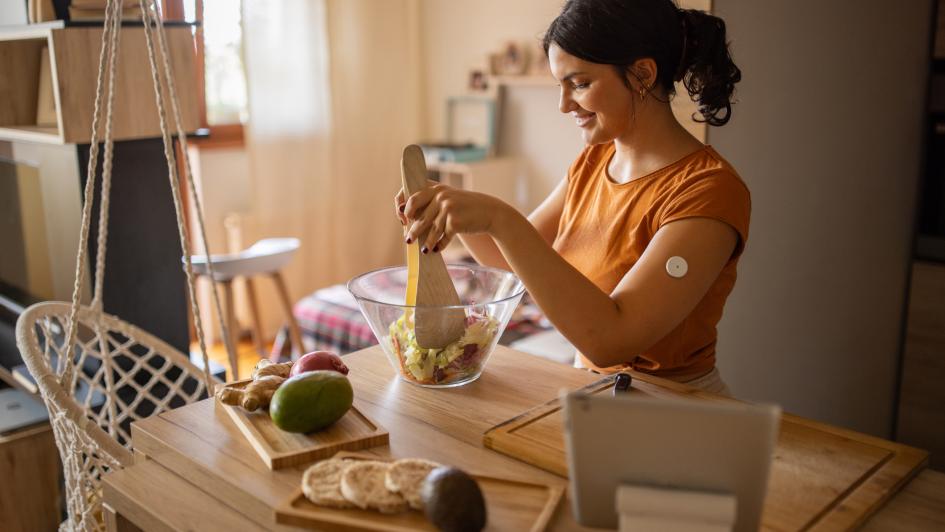November Is National Diabetes Awareness Month

Published
November is National Diabetes Awareness Month in the United States, a time to highlight the growing impact of diabetes and the importance of prevention. Today, more children, teens, and young adults are developing type 2 diabetes than ever before. The good news? Type 2 diabetes can often be prevented or delayed with simple lifestyle changes that support healthy blood sugar balance, weight management, and overall well-being.
More than 38 million Americans, about 1 in 10, have diabetes, and roughly 90% to 95% of them have type 2 diabetes. While it most often develops in people over 45, rising rates among younger populations make early prevention and awareness more important than ever.
Start Your Day with Breakfast
Skipping breakfast can raise post-meal blood glucose levels throughout the day, in both people with and without diabetes.¹ Start your morning with a balanced, nourishing meal that consists of lean protein, high fiber carbohydrates, and healthy fats to help prevent blood sugar spikes and keep you full longer. Good options are oatmeal with nuts and berries, a vegetable omelet, or a smoothie with Greek yogurt and spinach.
Fill Half Your Plate with Non-Starchy Vegetables
Vegetables provide essential nutrients—vitamins, minerals, and fiber- that help stabilize blood glucose and keep you fuller longer. Try eating your vegetables and protein first, before higher-carbohydrate foods, for additional blood sugar benefits.
Great non-starchy vegetables include broccoli, cauliflower, spinach, arugula, and other leafy greens.
Get Moving
A simple 15-minute walk after each meal can help lower blood sugar levels—but any kind of movement helps!² If walking after every meal feels unrealistic, try starting with a short walk after your largest meal of the day. Skip the dishes for now and lace up your sneakers instead.
Avoid Sugar-Sweetened Beverages
Many sodas contain 3–4 tablespoons of added sugar per can, which is a lot! Replace sugary drinks with healthier options such as water, tea, or coffee. If you miss the fizz, try sparkling water with a squeeze of citrus or a splash of 100% fruit juice.
Get Personalized Support at Bastyr Clinics
At the Bastyr Center for Natural Health and Bastyr University Clinic, our licensed naturopathic physicians and registered dietitians provide individualized, holistic care. They’ll work with you to create a plan that fits your lifestyle and supports your health goals.
Schedule an appointment at Bastyr Center for Natural Health or Bastyr University Clinic today to take the next step toward balanced blood sugar and lifelong wellness.
References:
About the Author
Rachel Boone, ND is a licensed naturopathic physician and adjunct clinical supervisor to student clinicians at Bastyr Center for Natural Health. She believes in empowering patients through education so they can take an active role in their wellness. Her clinical interests include cardiovascular disease, hypertension, diabetes, plant-based nutrition, and physical medicine modalities such as spinal adjustments, craniosacral, and visceral manipulation.
This article was originally published in 2021 and has been updated in 2025 for National Diabetes Awareness Month.

